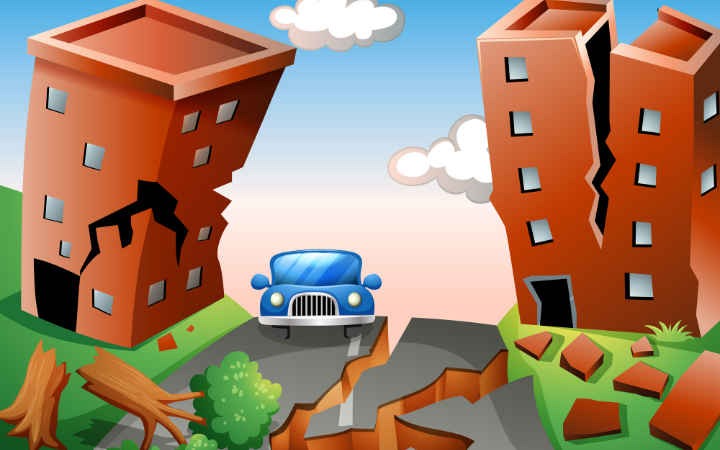This post is adapted from an article which originally ran in SFGate.com’s “Mommy Files” column, written by Amy Graff on October 21 2011.

My daughter and I were lying on the couch reading when last night’s little tremor shook the Bay Area. As our house rattled, my daughter wrapped her arms around my neck and then she jumped out of my lap and tucked herself underneath the desk.
Turns out she had just gone through an earthquake drill at school that day. She was prepared and knew what to do.
She was also terrified.
Her hands were literally shaking. My daughter is a worrier (like her mother), and after the quake passed she had dozens of questions.
We had a long talk about fault lines (we don’t live on one), bedrock (we live on it), foundations (ours is solid), earthquake kits (we have one), and the ’89 quake (I survived it).
I showed her the large jugs of water, the box full of energy bars and canned food, the emergency radio (thank you NPR!) and flashlights stashed in the closet. I wanted her to know that we were prepared—and this seemed to relax her as she fell asleep easily that night.
My daughter isn’t alone in her fears. Lots of kids around the Bay Area are anxious about earthquakes, and Christin Mullen, who works as a marriage and family therapist at Kaiser Permanente San Francisco, has treated many local children who can’t sleep after days like yesterday. She says this also comes up among the children, ages 7 to 11, who she sees in a weekly worry group.
I asked Mullen to offer up tips for parents on how to talk to their kids about earthquakes:
Allow your kids to talk.
“Parents need to take deep breaths and let their children talk about earthquakes,” Mullen says. “Answer their questions. Don’t be afraid to talk to them about it.” When kids ask about major natural disasters, you should “provide accurate information but focus on how people can support one another in these situations.”
But don’t talk too much.
“It’s really a balancing act,” says Mullen. “You need to talk about it but you don’t want to talk too much and become focused on it all the time. Let your kids lead the conversation.”
Educate your children in preparedness.
“It’s important to talk about earthquake preparedness,” Mullen says. “You can even involve them in the process. If your child helps put together the earthquake kit then he feels like he’s in control and it helps him understand that he can get through an earthquake.” It’s also important to remind your child that we live in an area where our public works people are working every day to make sure we’re all safe. Our buildings are designed to withstand major tremors.
Avoid exposing them to more information than they need.
“Avoid shocking videos,” warns Mullen. After the Japan tragedy, Mullen met with kids who were traumatized by television coverage. “After an earthquake, you don’t need to have the news on all the time,” she advises. “Kids don’t need to hear a newscaster say, ‘The Big One is right around the corner.’”
Comfort kids when they’re scared.
If your child is experiencing anxiety about earthquakes, comfort her. Talk, rub her back, listen to music, read a book. You can also encourage your child to write down her feelings or draw pictures. Kids love acting out earthquakes with Play-Doh.
Seek help if your child experiences long-term anxiety.
If your child has stomach aches, nightmares, headaches or sleeplessness for two weeks or more due to concerns about earthquakes, check in with your doctor.